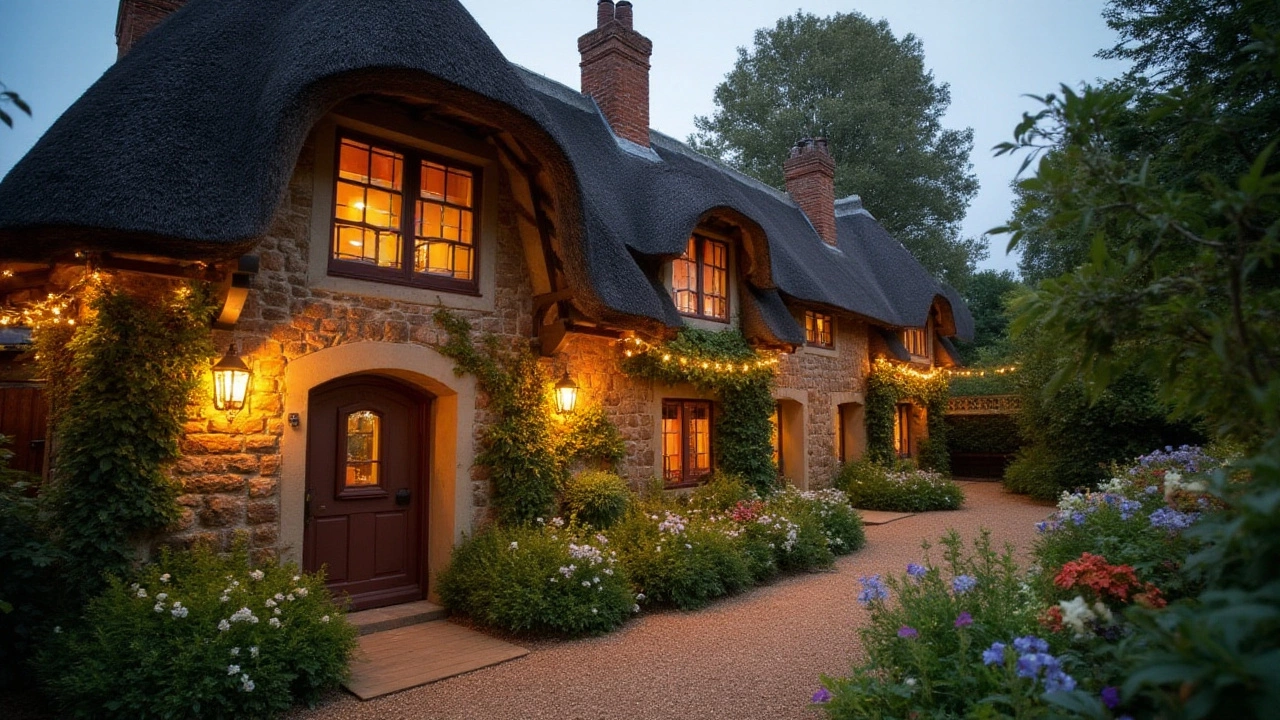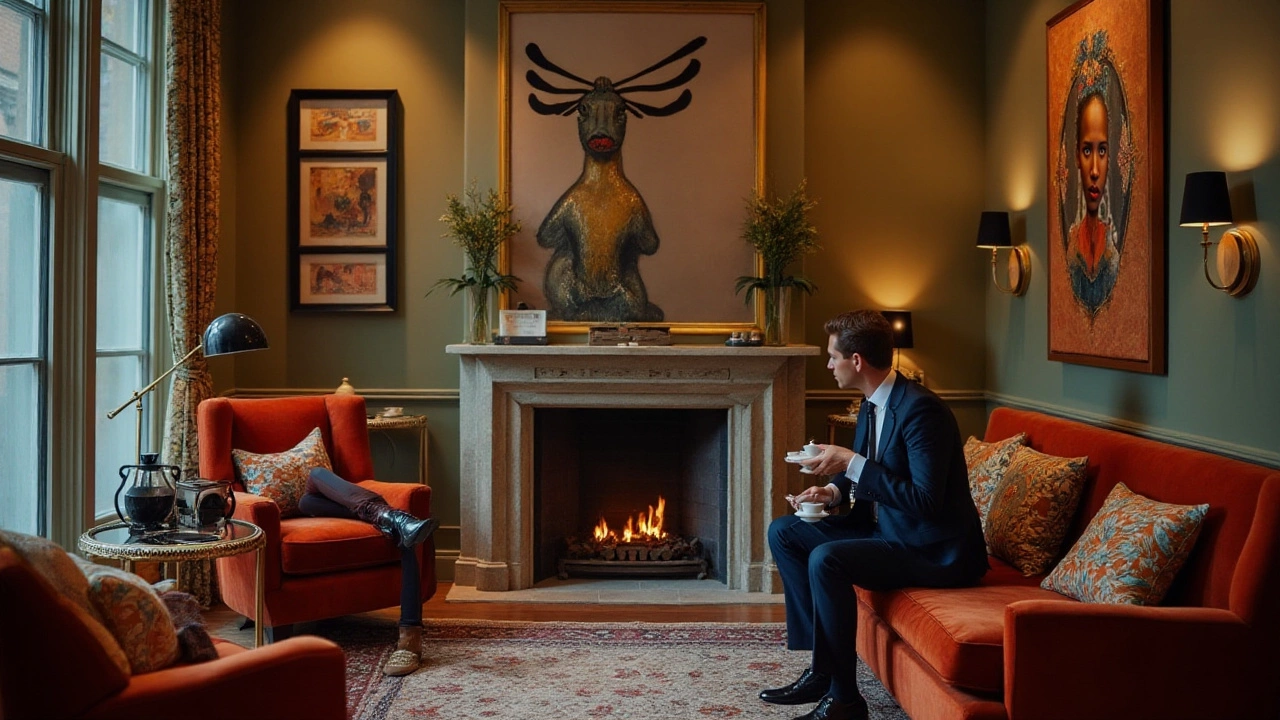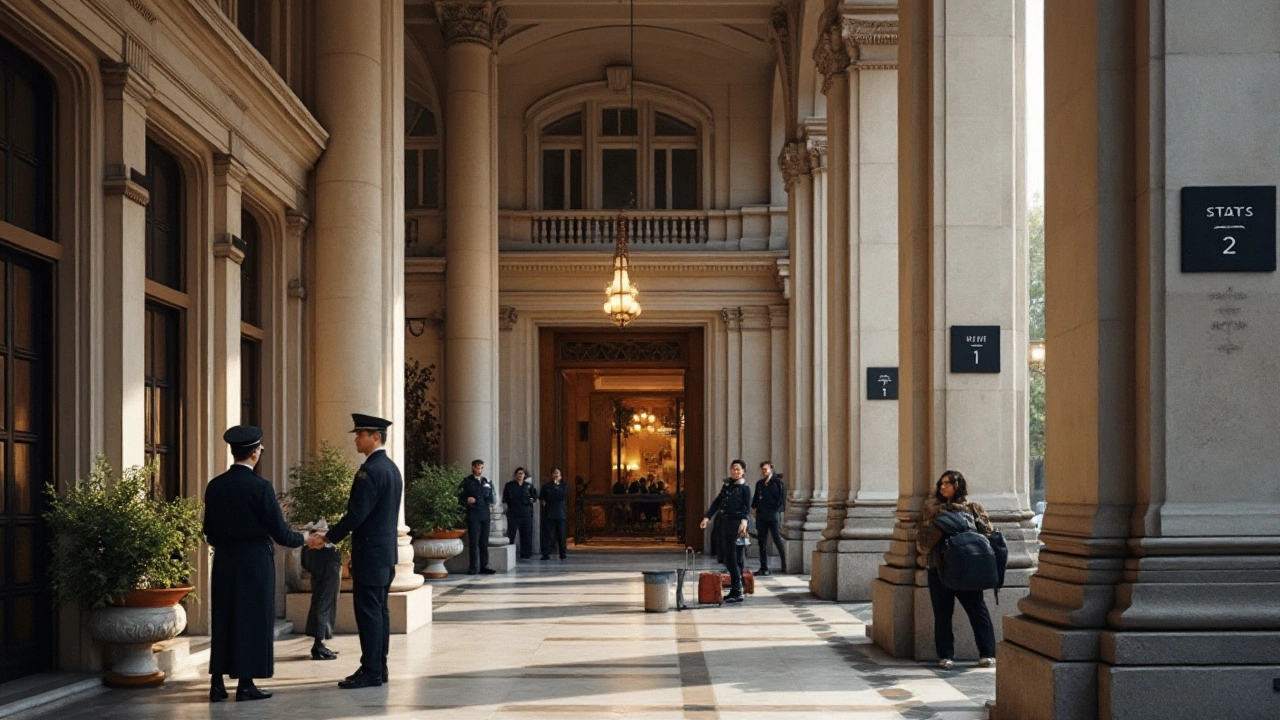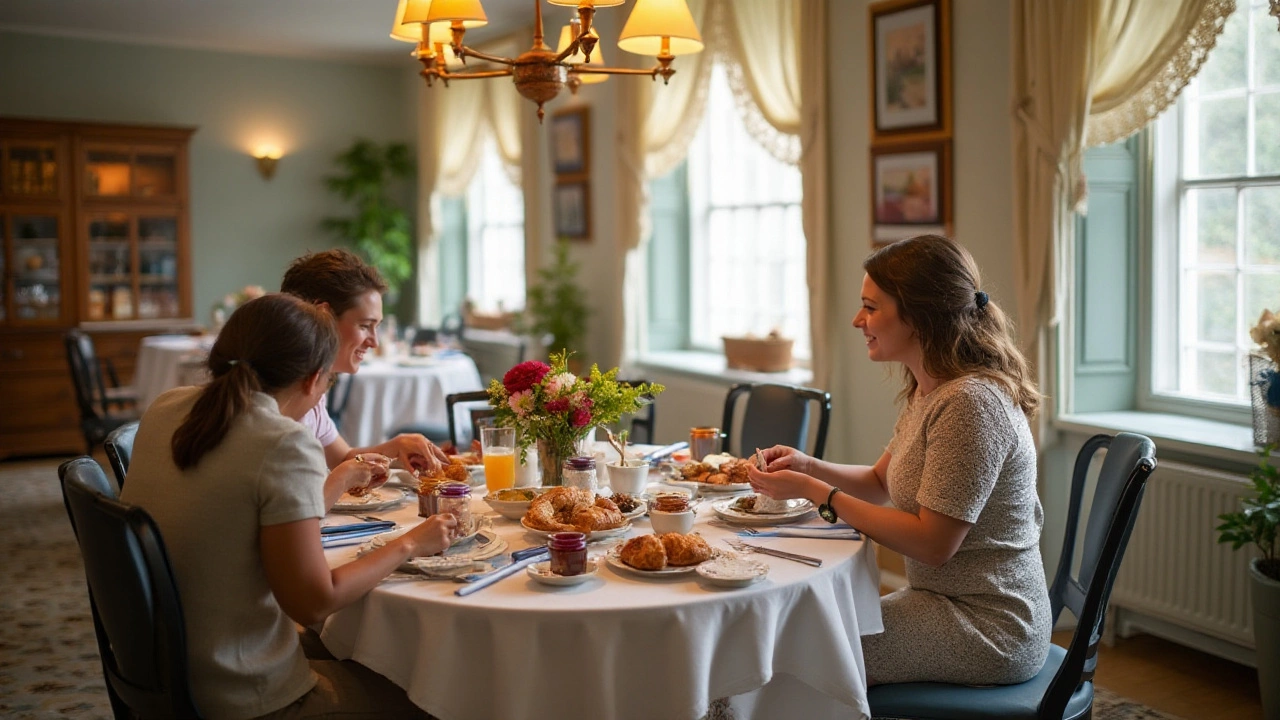Discovering the Unique Charm of Boutique Hotels vs. Traditional Hotels
 Dec, 16 2024
Dec, 16 2024
When it comes to travel, the type of accommodation you choose can greatly impact your experience. Whether you're traveling for leisure or business, understanding the nuances between boutique and regular hotels can help you find the perfect stay.
Boutique hotels offer a unique charm, often characterized by their size, style, and personalized service. Compared to regular hotels, which are generally part of larger chains offering standardized services across locations, boutique hotels provide guests with a distinct sense of place and individuality.
The decision between these two types often comes down to the kind of experience you're seeking. Are you looking for a stay that's intimate and oozing with character, or do you prefer the predictability and extensive amenities of a traditional hotel? Read on to explore these differences and decide what's best for your next trip.
- Defining Features of Boutique Hotels
- The Atmosphere and Aesthetic Appeal
- Amenities and Services Offered
- Choosing Between Boutique and Regular Hotels
Defining Features of Boutique Hotels
The term boutique hotel may conjure images of stylish decor and intimate settings, but what truly sets these accommodations apart from their traditional counterparts? It’s more than just size and aesthetics. Boutique hotels typically have between 10 to 100 rooms, which allows them to provide personalized service that larger hotels often find hard to achieve. This smaller scale creates a warm and intimate atmosphere, making guests feel more like residents than visitors. Unlike chain hotels where uniformity is key, each boutique hotel has its own unique character, often reflecting the culture and history of its surroundings.
Another defining feature of boutique hotels is their design. These hotels often act as a canvas for creativity, with each room offering different themes or a cohesive aesthetic throughout. You might find mid-century modern influences or a classical touch depending on the location and the vision of the hotelier. These design elements aim to create an immersive experience for guests, turning a simple stay into something memorable. Boutique hotels also pride themselves on incorporating local art and decor into their spaces, offering guests a genuine sense of place. A famous hotelier once said,
"A room should never allow the eye to settle in one place. It should smile at you and create fantasy."These words encapsulate the essence of what many boutique hotels aim to achieve.
Amenities in boutique hotels further distinguish them from traditional lodgings. While regular hotels might offer a wide range of facilities like swimming pools and gyms, boutique hotels focus on providing unique, high-quality experiences. You might find intimate rooftop bars offering stunning city views, in-depth local culinary workshops, or curated excursions that provide an exclusive peak into the local culture. The service at a boutique hotel is also typically more attentive and personalized, as staff often have fewer guests to assist at any one time. This means guests can enjoy individualized attention and even bespoke services such as personalized itineraries.
Travelers looking for an authentic and bespoke experience, whether for leisure or business, may find the allure of boutique hotels compelling. But not every boutique hotel fits the same mold. Some cater to niche markets, offering themed experiences that align with specific interests such as art, history, or cuisine. Others might innovate by blending the old with the new, preserving historic architecture while offering state-of-the-art technology and modern luxuries. This diversity within the boutique hotel category means there's likely a perfect stay awaiting any discerning traveler who seeks something out of the ordinary.

The Atmosphere and Aesthetic Appeal
Diving into the world of boutique hotels, you'll quickly notice the distinct atmosphere they provide, setting them apart from more traditional hotel options. Boutique hotels exude a character that often reflects the culture and essence of their location. Designers tend to incorporate local art, music, and culinary experiences, creating a vibe that regular hotels rarely can match. Within their walls, a story unfolds, adding layers of depth to your stay. The design is often thoughtful and intentional, leaving guests with a lasting impression.
This personalized style in boutique hotels means no two are exactly alike. They may range from chic and modern to rustic and cozy, with each property offering its guests something novel and intriguing. The aesthetic appeal can sometimes feel like stepping into a meticulously crafted scene from a movie or novel. For example, enter a boutique hotel in Paris, and you might find yourself amidst soft French accents, vintage artwork, and the scent of freshly baked croissants wafting through the lobby. The alchemy of these elements crafts an unforgettable experience.
Interestingly, the concept of boutique hotels took root in the early 1980s and has flourished ever since. The Mamas and the Papas founder John Phillips once said, "The best boutique hotels feel like staying at the stylish digs of a friend with impeccable taste."
"Boutique hotels are a refuge for those who want something more authentic, something that isn't just another anonymous building," said Ian Schrager, a pioneer in the boutique hotel industry.This quote encapsulates the spirit of these establishments and why so many travelers are drawn to them. In contrast, regular hotels often prioritize uniformity and efficiency, which can sometimes compromise their ability to deliver a unique guest experience.
Amidst focusing on design, boutique hotels also excel in creating cozy, intimate atmospheres. Many offer well-crafted communal spaces like libraries, rooftop gardens, and artisan cafes where guests can mingle, relax, or work remotely. These areas are thoughtfully designed to enhance one's stay, providing settings that encourage interaction and relaxation. You might find a corner nook in a boutique hotel, perfect for reading or people-watching, which you wouldn't encounter in a sprawling corporate hotel.
The ambiance in traditional hotels often prioritizes functionality over emotion. Large lobbies with generic furnishings greet you, emphasizing efficiency and flow. It's the predictability many travelers appreciate but might also find lacking in flair. Here, the focus is on providing a consistent experience, favoring large conference rooms and business centers over intimate lounges with fireplace-centric settings. These hotels deliver predictability, appealing to those who crave familiarity, or for business travelers needing straightforward, reliable services.
Moreover, boutique hotels frequently spotlight custom craftsmanship or regional artisans, contributing to their charm. Architecture in these hotels includes spaces converted from historic buildings such as former palaces, warehouses, or industrial areas, adding stories of yesterday to today's luxuries. Emphasizing a building's original features often enriches the guest experience, providing a tapestry of history meeting modern amenities. For urban-holics, this means resting in a room where decades or centuries of stories seep through beautifully weathered walls.

Amenities and Services Offered
One of the primary distinctions between boutique hotels and traditional establishments lies in the amenities and services they offer guests. In boutique settings, you will often find a focus on personalization and exclusivity. These hotels pride themselves on creating unique experiences, carefully curating everything from the furnishings to the menus served at their in-house restaurants. A stay at a boutique hotel might mean access to a locally sourced breakfast each morning, artisanal toiletries, or even bespoke concierge services designed to cater specifically to the tastes of the guests.
In contrast, regular hotels, particularly those that belong to larger chains, focus on a consistent experience for visitors. Their amenities are often designed to meet the broad needs of a larger group of customers. This typically includes conventional services such as room service, fitness centers, and swimming pools. While these facilities may lack the intimate flair of a boutique, guests often appreciate their predictability and the assurance of a quality standard, which is helpful when booking accommodations in unfamiliar destinations.
“The shift towards personalized service in hospitality is most evident in boutique hotels, which understand that guests are seeking a connection to the local culture,” notes travel expert Clara Williams.
Many traditional hotels capitalize on their larger size by offering extensive facilities and on-site activities that cater to families and business travelers. Often, you’ll find multiple dining options, conference rooms, and even ballrooms for events. Imagine having the opportunity to dine across different world cuisines without leaving the hotel premises! This scale is something boutiques might not match, but it highlights the tailored versatility a regular hotel might bring. Guests also enjoy rewards programs, which can add value for frequent travelers.
Boutique hotels also excel in offering unique experiences such as themed rooms, workshops, and intimate local tours. These establishments often work closely with local artisans, guides, and chefs to provide guests with a true flavor of the area. It’s not uncommon to find boutique hotels nestled in historical buildings, their offerings echoing the rich stories of the past, and yet, catering to the contemporary comforts and luxuriant expectations modern travelers have.
| Feature | Boutique Hotels | Traditional Hotels |
|---|---|---|
| Personalized Service | Highly personalized | Standardized |
| Size and Scale | Small and intimate | Large with extensive facilities |
| Dining Options | Locally inspired cuisine | Diverse, multiple outlets |
Ultimately, the choice between boutique and traditional hotels boils down to what aligns more with your preferences and travel goals. Whether it is the cozy, personalized touch of a boutique hotel or the comprehensive and dependable nature of a larger chain, each offers a distinct kind of comfort that, when chosen right, enhances your travel experience significantly.

Choosing Between Boutique and Regular Hotels
Deciding between a boutique hotel and a traditional hotel is often about what kind of experience you want on your travel journey. Boutique hotels are celebrated for their character and individuality, often reflecting the culture and vibe of their surroundings. They are usually independently owned or part of a small, unique group of hotels, and you're likely to find them tucked away in historic or culturally vibrant neighborhoods. The charm of these spaces is in their attention to detail, from curated art collections to custom furniture pieces, which makes the stay not just about rest, but about the story each hotel tells. Many travelers find this appealing because it enriches their journey with local flavor and exclusive touches.
On the other hand, regular hotels, especially those belonging to large chains, promise predictability and a familiarity that can be comforting. Whether you are in New York or Tokyo, you can expect similar room layouts, breakfast options, and even soap brands, providing a sense of home no matter where you are on the globe. These hotels often offer a wide range of amenities like pools, gyms, and business centers, which can be particularly attractive for business travelers or those who enjoy certain luxuries without the need for surprises. Additionally, loyalty programs are a significant perk of regular hotels, often rewarding frequent stays with discounts or free nights, making them a preferred choice for business and frequent travelers.
Price is another factor in choosing between boutique hotel and traditional accommodation. While both types of hotels have offerings across the spectrum, boutique hotels tend to lean on the luxury side due to their specialized nature and smaller size. On occasion, these hotels might offer competitive rates, particularly during off-peak seasons, presenting an opportunity for bespoke experiences at a better price point. Regular hotels, leveraging their economies of scale, often provide a variety of price options, helping to accommodate budgets both big and small. It's worth noting that booking either type of hotel could be influenced by seasons, events, and location, which can affect prices significantly.
An additional factor to consider is the level of service. Boutique hotels often excel in personalized care, paying unparalleled attention to guest preferences and details. For instance, some may offer personalized welcome gifts or will remember your favorite type of tea each morning, creating a bond that leads guests to return. However, traditional hotels generally offer consistent, efficient service with the support of extensive staff and established procedures, ensuring essentials like check-in and check-out are streamlined regardless of the location.
"Staying in a boutique hotel feels like having a locally-crafted experience where every detail has a purpose," said Lila Reynolds, Editor of Travelers' Gazette. "In contrast, a larger hotel offers the certainty of known comfort and reassurance – something that's invaluable to many travelers."
In conclusion, choosing between a boutique hotel and a regular hotel involves considering what is most important to you as a traveler: the desire for a curated, intimate experience or the comfort and consistency of a familiar environment. Whether seeking extraordinary individuality or time-tested amenities, both types of accommodation have their place in creating memorable travel experiences.